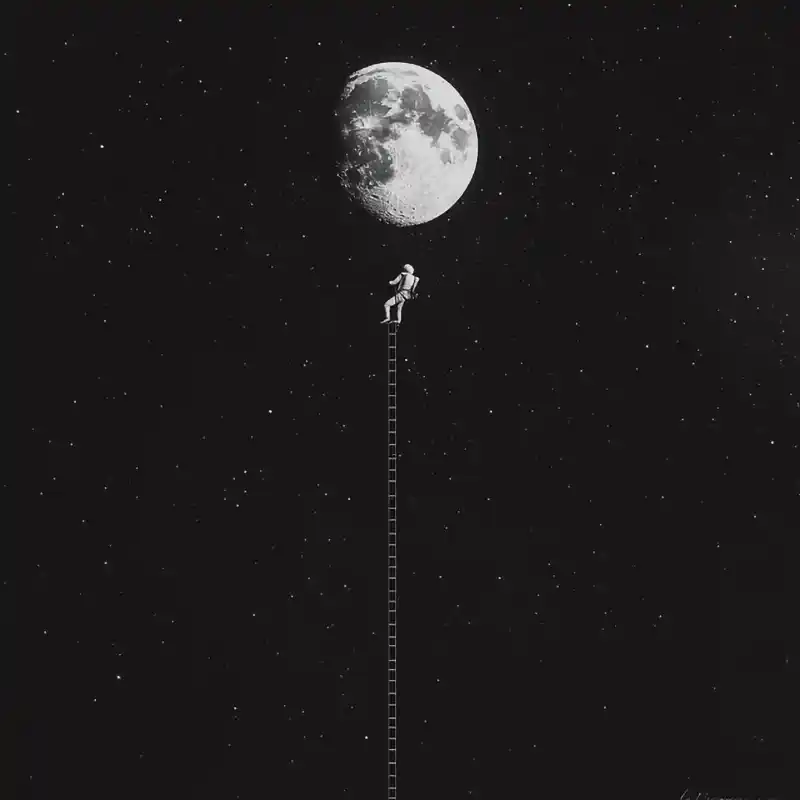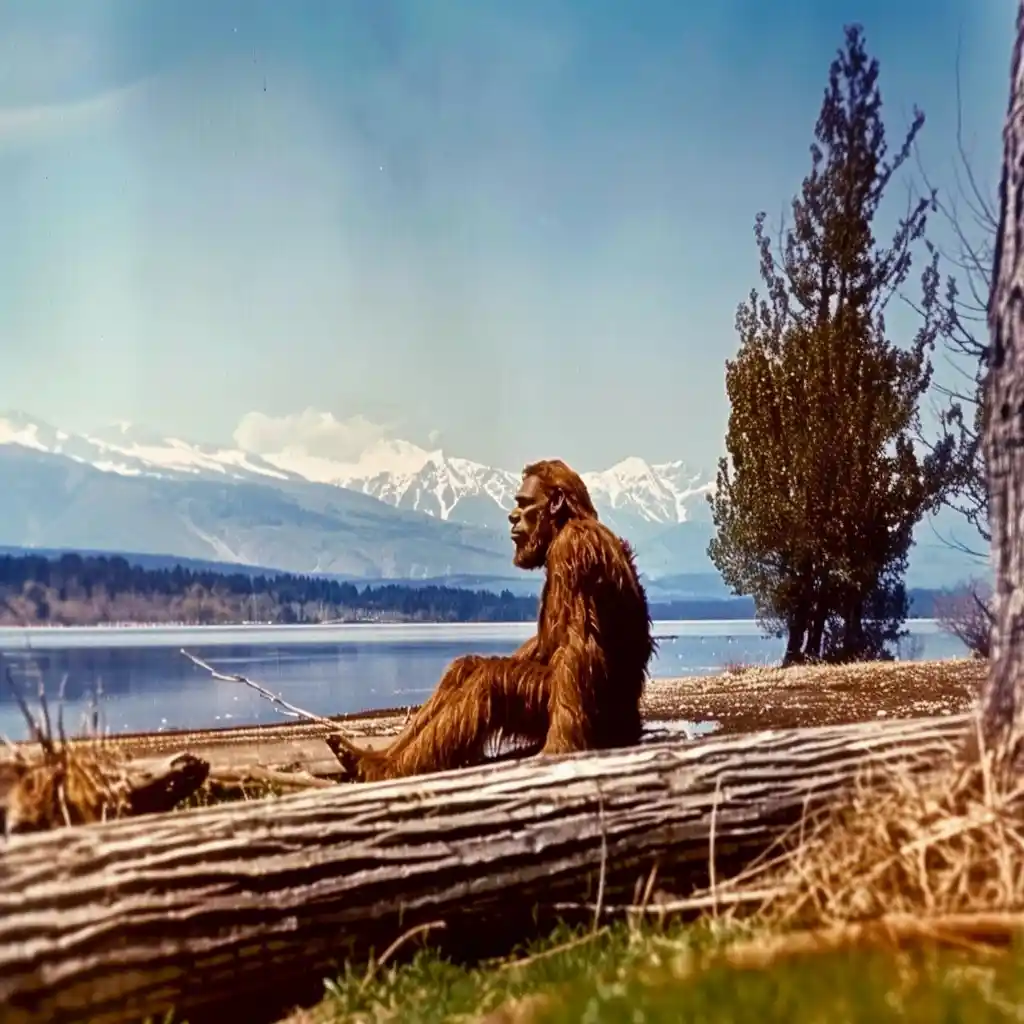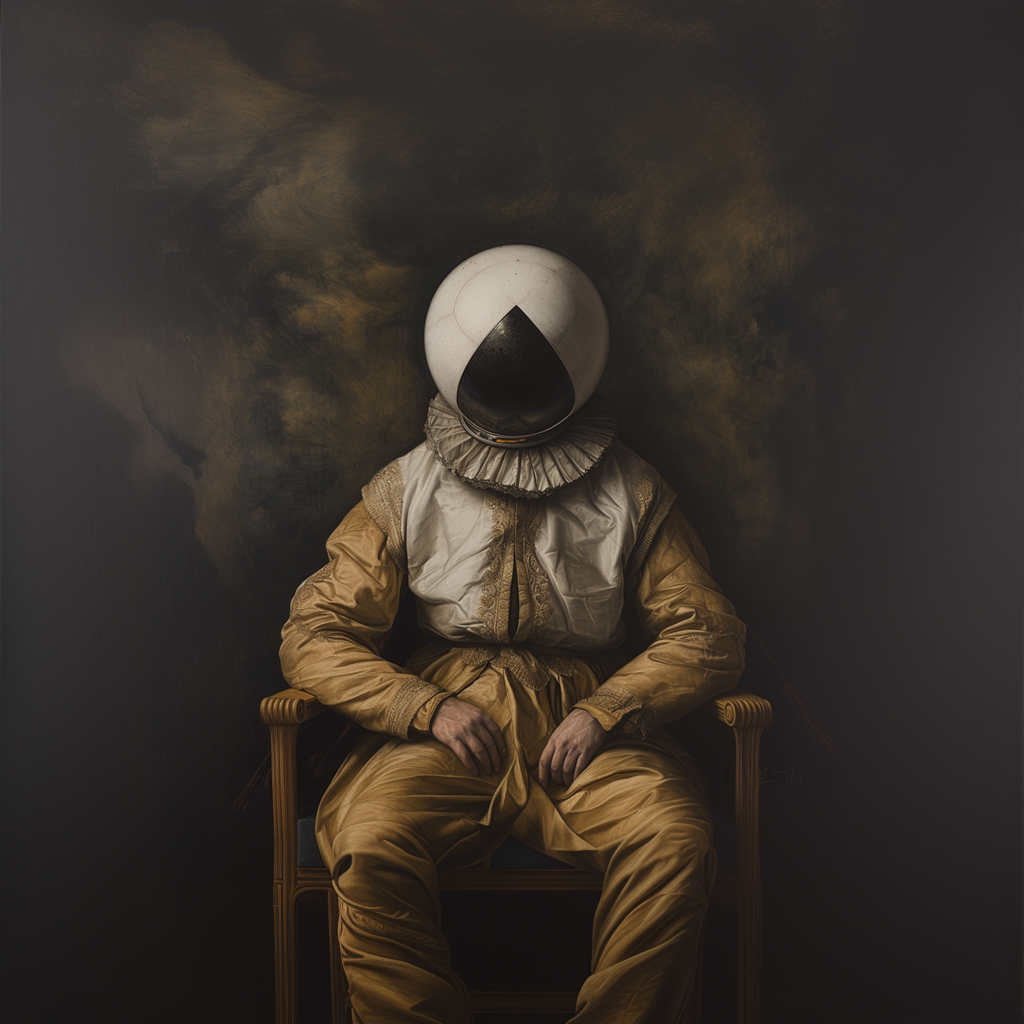
Mondlandung
Der Gedanke, den Mond zu erreichen, hat die Menschheit schon immer fasziniert. Nur der Weg dorthin verändert sich je nach Epoche und damit den verfügbaren Werkzeugen, Techniken und Mitteln. Noch vor nicht allzu vielen Jahrhunderten stellten sich die Menschen vor, dass der Mond mit gigantischen Kanonen oder gewaltigen Raketen erreichbar wäre. Diese Idee fand unter anderem in Jules Vernes Von der Erde zum Mond eine dramatische Ausführung. In einer Zeit, in der Raumfahrt noch ein ferner Traum war, war die Vorstellung, den Mond zu betreten, reine Fantasie, geprägt von den damals vorstellbaren Technologien.
Die Tage vergingen seitdem, ebenso Wochen, Monate und Jahre, und dann war es soweit: Im Jahr 1969 schien der Traum Wirklichkeit zu werden, als Neil Armstrong als erster Mensch den Mond betrat. Oder war das nur ein Schauspiel? Zweifel an der Mondlandung bestehen bis heute. Manche glauben fest daran, dass alles in einem Studio gefilmt wurde, vielleicht sogar von Stanley Kubrick. Doch warum sollten Hunderttausende von Wissenschaftlern und Ingenieuren über Jahrzehnte hinweg lügen? Wären nicht längst einige der Eingeweihten an die Öffentlichkeit getreten, um die „wahre“ Geschichte zu erzählen?
Viele denken, wir waren nicht auf dem Mond. Doch wir waren da. Allerdings sind wir da anders als zuvor gedacht hingekommen.
Doch abgesehen von diesen Zweifeln, was wäre, wenn auf dem Mond tatsächlich mehr passiert ist, als wir wissen? Gerüchte besagen, dass Astronauten Dinge gesehen haben, die sie nicht erklären konnten – Geister, vielleicht sogar außerirdische Raumschiffe. Solche Geschichten lassen Raum für Spekulationen und inspirieren weiterhin Filme und Literatur. Allerdings ist es bemerkenswert, dass nur wenige Astronauten von solchen Erlebnissen berichtet haben und diese oft aus Mangel an Beweisen auf die Ebene der Fantasie verwiesen werden. Was an den Gerüchten wirklich dran ist, lässt sich rein logisch nicht bestätigen – vielleicht spukt es dort oben tatsächlich ein wenig?
Interessanterweise sind wir Menschen seit diesem historischen Ereignis nur selten zum Mond zurückgekehrt. Ja, die Wissenschaft schreitet weiter voran, aber warum haben wir nicht mehr Fußabdrücke auf dem Mond hinterlassen? Eine Frage, die sich wohl auch Indien gestellt hat, weshalb im Jahr 2024 einige neugierige Inder auf dem Mond landeten. Merkwürdigerweise wurde dieses Ereignis in der westlichen Presse kaum wahrgenommen. Vielleicht ist man neidisch auf die Inder, die statt als billige Fachkräfte unsere IT-Abteilungen zu unterstützen, lieber zum Mond fliegen – und uns dabei hinter sich zurücklassen.
Abschließend könnte man sagen: Vielleicht ist die Mondlandung weniger ein Ziel an sich, sondern ein symbolischer Triumph, der beweist, dass der menschliche Geist es vermag, über seine Grenzen hinauszuwachsen. Wie dem auch sei, der Autor dieses kleinen Essays hat keinerlei Lust, in so einer gefährlichen Rakete zum Mond zu fliegen. Er wartet lieber so lange, bis ihn die Lufthansa in einem komfortablen Raumgleiter dorthin bringt. Das kann dauern – und möglicherweise ist dann, wenn es soweit ist, der Flug bereits ausgebucht, wahrscheinlich wieder von neureichen Indern.
/// /// ///
The Moon Landing – Reality, Doubt, and Fantasy
The idea of reaching the moon has always fascinated humanity. But the path to get there has changed over time, depending on the tools, techniques, and means available. Not too many centuries ago, people imagined that the moon could be reached with gigantic cannons or powerful rockets. This idea was also dramatized in Jules Verne’s From the Earth to the Moon. At a time when space travel was still a distant dream, the notion of setting foot on the moon was pure fantasy, shaped by the technologies conceivable at the time.
Days passed, followed by weeks, months, and years, and then it finally happened: In 1969, the dream seemed to become reality when Neil Armstrong became the first person to set foot on the moon. Or was it all just a show? Doubts about the moon landing persist to this day. Some firmly believe that it was all filmed in a studio, perhaps even by Stanley Kubrick. But why would hundreds of thousands of scientists and engineers lie for decades? Wouldn’t some of the insiders have come forward by now to tell the „true“ story?
Many people think we haven’t been to the moon. But we have been there. However, we got there differently than previously thought.
But setting these doubts aside, what if more happened on the moon than we know? Rumors suggest that astronauts saw things they couldn’t explain—ghosts, perhaps even alien spacecraft. These stories leave room for speculation and continue to inspire films and literature. However, it’s worth noting that only a few astronauts have reported such experiences, and these are often relegated to the realm of fantasy due to a lack of evidence. What is really behind these rumors? Logically, it’s hard to say—but maybe there really are some spooky things up there.
Interestingly, since that historic event, humans have rarely returned to the moon. Yes, science has advanced, but why haven’t we left more footprints on the moon? This is a question India must have asked itself, leading to the landing of some curious Indian astronauts on the moon in 2024. Strangely, this event received little attention in the Western press. Perhaps there is some jealousy toward the Indians, who, instead of supporting our IT departments as cheap labor, are now flying to the moon—and leaving us behind.
In conclusion, perhaps the moon landing is less about the destination itself and more about the symbolic triumph associated with it—a proof that the human spirit can transcend its limits. In any case, the author of this little essay has no desire to fly to the moon in such a dangerous rocket. He’d rather wait until Lufthansa takes him there in a comfortable space glider. That might take a while—and when it does finally happen, the flight will probably already be booked, once again by newly rich Indians.
Related Posts
The Bigfoot
Semper viverra nam libero justo laoreet sit amet. Pulvinar etiam non q
AI Showreel 21 Million Lights Kopieren
Semper viverra nam libero justo laoreet sit amet. Pulvinar etiam non q
Tesla creative
Semper viverra nam libero justo laoreet sit amet. Pulvinar etiam non q
Who are you
Semper viverra nam libero justo laoreet sit amet. Pulvinar etiam non q
A Meditative AI Journey
Semper viverra nam libero justo laoreet sit amet. Pulvinar etiam non q
Fairy Tail
Semper viverra nam libero justo laoreet sit amet. Pulvinar etiam non q






